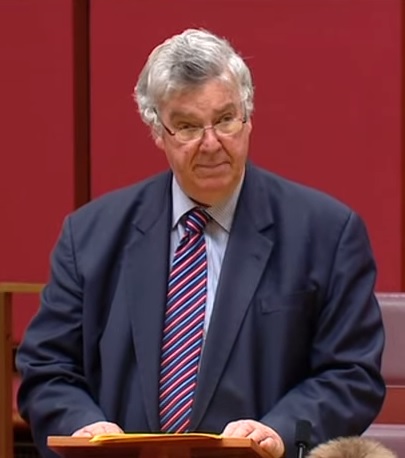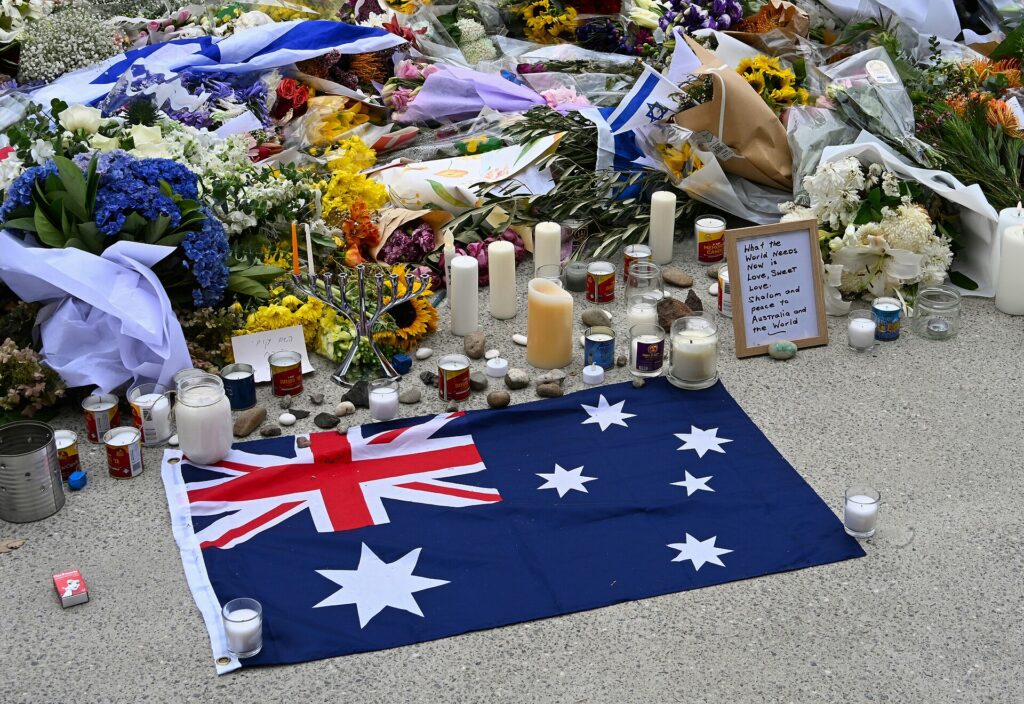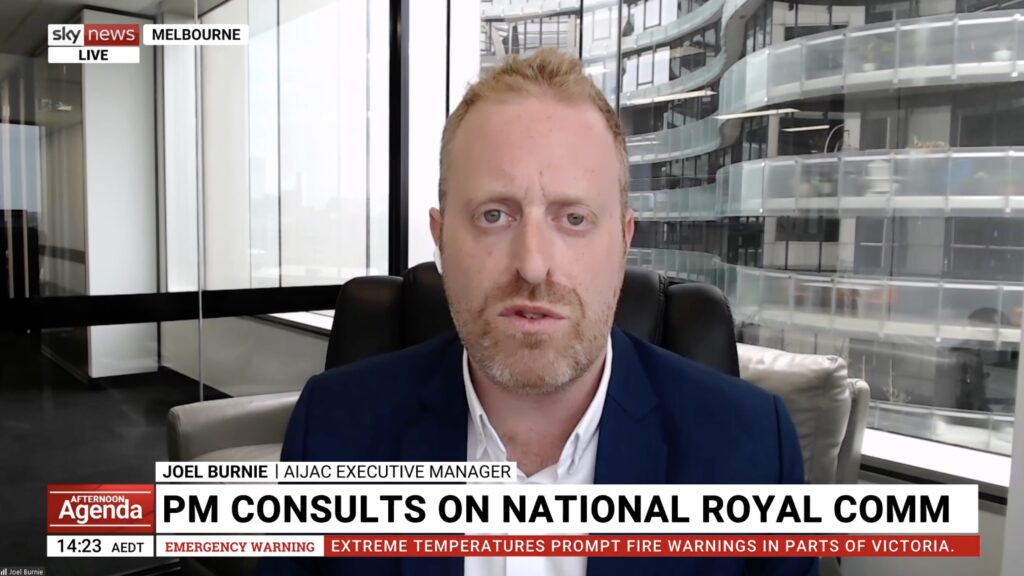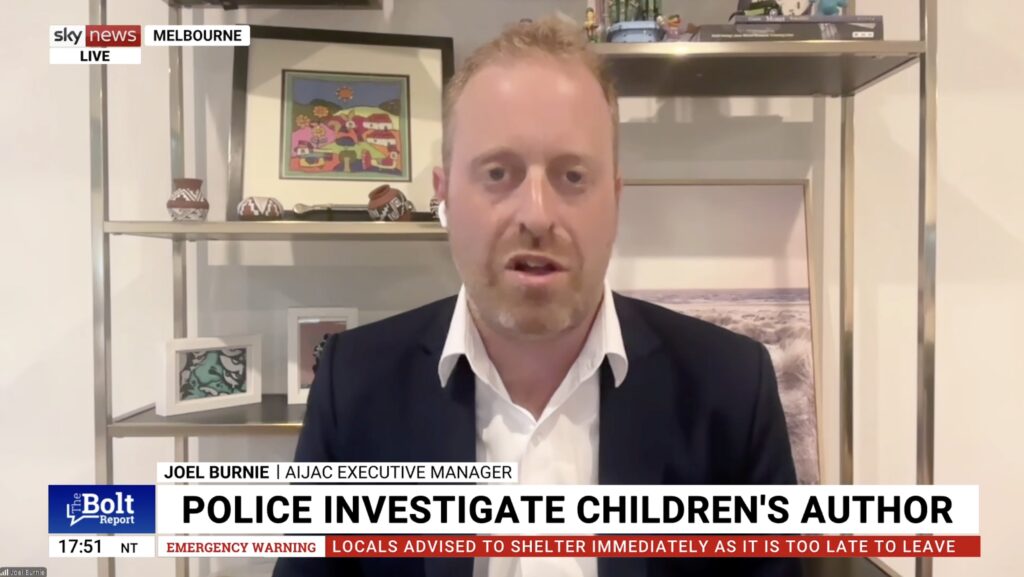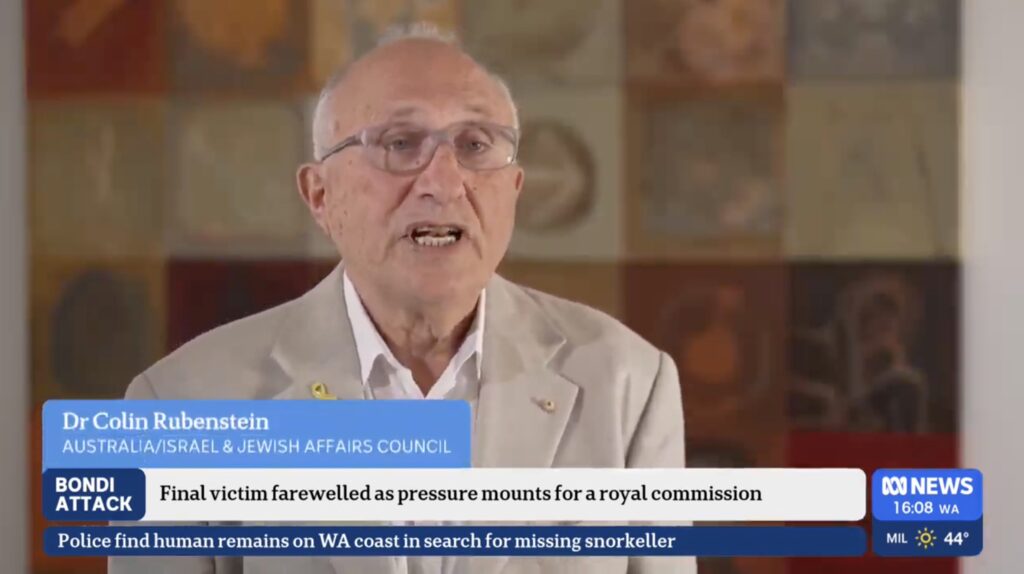UPDATES
Israel takes mediating role in Ukraine war
March 18, 2022 | AIJAC staff
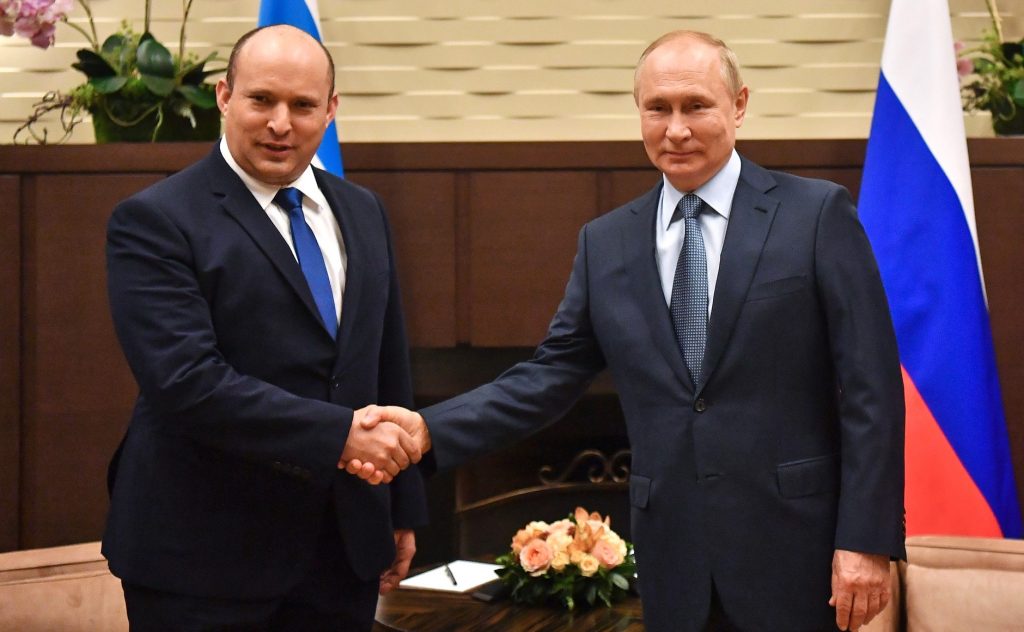
Update from AIJAC
03/22 #03
During the current Ukraine war sparked by Russia’s invasion late last month, Israeli PM Naftali Bennett has been acting as a mediator between Kyiv and Moscow, with the support of both parties as well as Washington. Indeed the Financial Times cited a number of international officials who asserted that Israel has been the “primary international mediator” between the two sides.
This is a pretty unprecedented role for Israel – and this Update looks at why Jerusalem has come to be in that role, what it has been doing, and also some of the controversy Bennett’s mediation efforts have occasioned.
We start with a good summary of the major issues and developments in Israel’s mediating efforts from Mark Gollom of the Canadian Broadcasting Corporation (CBC). Gollom cites a number of Israeli experts discussing Israel’s mediating role and various aspects of it, including the circumstances in Syria that led to Israel developing a unique relationship with Moscow even while remaining firmly in the Western camp. The piece also looks at the controversy within Israel regarding Bennett’s muted criticism of the Russian invasion, even as Foreign Minister Lapid strongly and explicitly condemned it. For this useful collection of expert analysis on the mediation efforts, CLICK HERE.
Next up is an excellent debunking of false claims that Israel has been neutral in the face of the Russian invasion, written by Jerusalem Post diplomatic correspondent Lahav Harkov. She notes the numerous official Israeli condemnations of Russia by both the Foreign Minister and other officials and looks at the realities of Israel’s mediation efforts. Harkov also counters false claims that Israel had pressured Ukrainian President Zelensky to accept Russian terms, and reports on Israel’s aid efforts to Ukraine. For this must-read piece in full, CLICK HERE.
Finally, we offer a debunking of yet another false claim about Israel’s role in the Ukraine crisis – that Israel is refusing to choose between Russia and the West. Mark Regev, former spokesperson in the Israeli PM’s office and former Israeli Ambassador to London, shows by looking at some history that Israel has already clearly made that choice – it has chosen the West. He then makes the case that Israel can play a mediating role in a way that benefits both itself and the West, without having to call into question its overall stance as a firm ally of the US and NATO. For Regev’s valuable argument, CLICK HERE.
Readers may also be interested in…
- As noted, Bennett’s mediation efforts have been controversial in Israel – here are contrasting views of those efforts from Dr. Gerald Steinberg – who is sceptical – and Prof. Efraim Inbar, who is more positive.
- Some lessons Israel is learning from the Ukraine war, as explained by various experts interviewed by Israel Kasnett of JNS.org.
- There are recent reports that Ukraine and Russia “have made significant progress on a tentative peace plan including a ceasefire” according to outside diplomats – casting doubt on the stance of those who insisted Bennett’s mediation efforts were futile.
- Ukrainian President Zelensky is scheduled to address Israel’s Knesset on Sunday.
- French intellectual Bernard-Henri Levy explores the complex historical relationship between Ukraine and the Jewish people.
- Veteran journalist Matti Friedman reports on Israeli preparations to absorb a new wave of immigrants from Ukraine.
- A Jerusalem Post editorial praises an Israeli Government decision to reverse an early announcement which limited the ability of non-Jewish refugees from Ukraine to remain in Israel.
- A short clip of former Israeli Ambassador to Australia Yuval Rotem explaining Israel’s stance in the Ukraine crisis, from a recent AIJAC webinar. In another short clip, Rotem explores the reported terms of the new Iran nuclear deal which leaks say may be about to be announced.
Israel’s direct line to Putin casts it as an unlikely potential mediator in Russia’s war on Ukraine
Israeli PM Naftali Bennett has had calls with both Vladimir Putin and Volodymyr Zelensky
Mark Gollom
CBC News, Mar 17, 2022

Ukrainian President Volodymyr Zelensky during a visit to Israel in 2020: Zelensky has now asked Israel to mediate with Russia and consider hosting peace talks in Jerusalem (Photo: Wikimedia Commons | Licence details)
Since Russia launched its war with Ukraine, only one Western leader has had face time with Vladmir Putin: Israeli Prime Minister Naftali Bennett.
A little over a week after the Russian president had ordered the launch of missile and artillery attacks into Ukraine territory, Bennett flew to Moscow to hold a meeting with Putin. But later that day, Bennett also spoke on the phone with Ukrainian President Volodymyr Zelensky.
And now, it’s Bennett, who according to a report in the Financial Times, has been “the primary international mediator” in negotiations between Russia and Ukraine, as they try to hammer out a peace deal.
This open dialogue Bennett has with both leaders highlights the distinctive, yet delicate position Israel finds itself in when it comes to the war in Ukraine. It is now seen as potentially playing a mediator-type role in trying to end the war, but it has also been called out for not taking a stronger stance against the invasion.
“We’re in a situation where tiny Israel has all of a sudden become this pivot in the potential Cold War rematch,” said Shalom Lipner, who was an advisor for seven consecutive Israeli premiers over a quarter-century at the Prime Minister’s Office in Jerusalem.
“Nobody would have seen that coming.”
Israel toeing ‘very delicate line’
“It’s turned out that Israel has been the rare exception that’s become acceptable to both sides,” he said.
While Israel remains a staunch ally of the United States, circumstances in the Middle East over the past decade have led it to carve out its own co-operative relationship with Russia.
That has led to a situation where “Bennett, unlike probably any other Western leader, can hop on a flight like he did two weekends ago and travel to Moscow and meet Putin in person,” said Neri Zilber, a Tel Aviv-based journalist covering Middle East politics and an adjunct fellow at the Washington Institute for Near East Policy.
However, it also means that Israel is “trying to toe a very delicate line between, you know, moral and humanitarian support to Ukraine, while also safeguarding a few vital strategic interests, as the government sees it, vis-a-vis Russia.”
Since the conflict began, Bennett has met with Putin once, and spoken on the phone with him twice. Meanwhile, Bennett has had six calls with Zelensky, the Associated Press reported.
On Monday evening, Bennett left a cabinet meeting in order to hold back-to-back phone calls with Putin and Zelensky, Reuters reported. The call with Putin lasted for roughly an hour and a half.
“Israel will continue to act to prevent bloodshed and bring the sides from the battlefield to the conference table,” Bennett said this week.
Mediator or go-between?
Despite Bennett’s access to both leaders, it still remains unclear how far his role as a so-called mediator may extend.
“It’d be a little bit exaggerated to say that he’s going to broker a deal between Ukraine and Russia,” Lipner said.
However, there is still merit in having Israel act as a potential go-between, “trying to kind of narrow gaps between the two sides,” as well as relaying whatever Putin says to Israel’s Western allies, Zilber said.
“I think that a more and more realistic role is really this kind of a role as a go-between rather than full-on mediator,” said Vera Michlin-Shapir, who previously worked on Israel’s National Security Council.
“Someone who can go and … speak to both sides in a more amicable way, even just to get a better feel of the situation. That’s quite a lot. It’s not nothing.”
Israel co-ordination with Russia in Syria

Russian troops at Khmeimim Air Base in Syria: It is the Russian presence in Syria since 2015 that has necessitated the development of Israeli-Russian ties over recent years (Photo; Wikimedia Commons | Licence details).
Israel’s current relationship with Russia has been forged out of Russia’s military presence in Syria. Russia has backed Syrian President Bashar Assad in the civil war in that country, and has established a military presence there. Yet Israel has continued to carry out attacks against Hezbollah and Iranian backed targets in Syria, which has necessitated Russia working with Israel to ensure its military is spared from hits.
As well, the countries have worked out what’s known as a deconfliction mechanism between the Israeli Air Force and the Russian Air Force to ensure clashes are avoided.
“[There] have been very frequent meetings and co-ordination on that specific issue,” said Gerald Steinberg, professor emeritus of political science at Bar-Ilan University.
“It’s not at all unusual for Israeli prime ministers — in the past it was [Benjamin] Netanyahu — now Mr. Bennett, to fly to Moscow on those issues. They know Putin. And Putin knows the Israeli leadership.
“It is not completely out of the blue that Bennett would go and talk to Putin in what was described as some sort of third party, perhaps mediation. So Israel is in a relatively unique position.”
Israel also has a large expatriate population of Russians and Ukranians, and there are thousands of dual citizens, both Russian and Israeli and Ukranian and Israeli, Steinberg said, noting there’s also a Jewish community in Russia.
“So there’s been that dialogue. Putin has always taken an interest in the expat community in Israel,” he said.
Bennett criticized for reluctance to condemn Russia
However, Bennett’s reaction to the conflict has prompted some criticism against the Israeli prime minister, accusing him of being reluctant to condemn Russia’s aggression.
While Israeli Foreign Minister Yair Lapid has repeatedly condemned Russia’s invasion, Bennett’s criticism has been muted.
“It was criticized and there was criticism from within Israel. Lots of pressure from the United States in particular. You have an invasion of a country [that’s a] democracy and Israel was sitting on the side,” Steinberg said.
Israel has delivered humanitarian aid to Ukraine, but has not joined its Western allies in sending military assistance or imposing sanctions on Russia.
Steinberg said Israel is in a position where it doesn’t want to anger Putin and lose the co-ordination it has regarding Syria, which is vital to their security. But at the same time, he said it wants to fulfil its sense of obligation toward a fellow democratic country like Ukraine.
Israel did vote in the UN General Assembly to condemn Russia. Meanwhile, Israel says it is working to prevent Moscow’s oligarchs, some of whom also hold Israeli passports, from showing up and turning the country into a haven for sanctions evasion, the Washington Post reported.
Israel’s position has ‘limited horizon’
However, Lipner suggested that Israel’s current position of trying to play both sides, or “dance between the raindrops” has a “limited horizon.”
“I don’t know that Israel could afford to sustain a position like this where there are questions about where allegiances lie.”
If the conflict drags on and no tangible progress is made toward a deal, or there’s a perception that Putin is just playing Bennett as he continues his war objectives, “the jig will be up.”
“At that point I don’t think that anybody will tolerate sort of any equivocation,” Lipner said.
Mark Gollom is a Toronto-based reporter with CBC News. He covers Canadian and U.S. politics and current affairs.
The False Narrative of Israeli Neutrality in Russia’s Ukraine Invasion
By Lahav Harkov
National Review, March 15, 2022
The nation is not ‘sitting on the fence,’ but is playing an important mediating role.

Israeli Foreign Minister Yair Lapid has repeatedly condemned Russia’s invasion of Ukraine and promised Israel will not be a conduit for bypassing the sanctions imposed on Russia (Photo: Shutterstock, Gil Cohen Magen)
Jerusalem — “We condemn Russia’s invasion of Ukraine,” Israeli foreign minister Yair Lapid said this week, during an official visit to Romania. “[The invasion] has no justification, and we call on Russia to stop the shooting and the attacks and solve the problems around the negotiating table.”
Additionally, Lapid said, “Israel will not be a route to bypass sanctions imposed on Russia by the United States and other western countries.”
But Israel’s prime minister, Naftali Bennett, has been a bit vaguer in his messaging. He’s spoken about “solidarity with the people of Ukraine” and is careful not to mention Russia when he talks about the war. In fact, he doesn’t talk about war; his messages speaking out against the bloodshed mostly say “the situation” — which is a more commonly used catch-all in Hebrew than in English, but still fairly weak — and recently, “the fighting.”
Israel also hedged at the U.N. when the war in Ukraine began. The U.S. gathered signatures for a Security Council resolution from countries that are not on the council in order to show a united front against the Russian invasion, even though Moscow would inevitably veto it. Israel declined to sign. Days later, Lapid said that Israel is “on the right side of history,” and announced that Israel would vote in favour of the resolution against Russia in the U.N. General Assembly — and it did.
As a result of that initial reaction and more, Israel has been accused of not taking a side in this conflict that has united the West in opposition to Russia. However, Jerusalem has pushed back against the claim that it has been neutral or silent on Ukraine. Indeed, the situation is more complex than some Western media reports have suggested and reflects Israel’s being in a unique position to play an important mediating role, even if the messaging has at times been muddled.
Lapid, notably, has condemned Russia twice this week, in addition to several other times before that.
“We are not sitting on the fence; we are clearly on the side of the West. . . . That is an incorrect description. We are doing a lot, more than most countries,” Israeli health minister Nitzan Horowitz, who orchestrated an Israeli field hospital in western Ukraine, told Israel’s public broadcaster, Kan. “We declared that we are unequivocally with Ukraine and against the Russian invasion.”
When asked about his alleged fence-sitting, Bennett told Israel’s Channel 13 that “what is described in the media is wrong,” because “the different players want us in a place in which we can hold dialogue with everyone.”
That dialogue has become a key element in Israel’s response to the war on Ukraine, which became much clearer after Bennett jetted to Moscow and Berlin to meet with Russian President Vladimir Putin and German chancellor Olaf Scholz on March 5, violating the Sabbath that he normally observes, because of the exemption in Jewish law for saving lives.
In the ensuing 24 hours, Bennett spoke with Ukrainian president Volodymyr Zelensky three times, Putin again, and French president Emmanuel Macron. He has been in touch with all the aforementioned players repeatedly since then.
Israel’s involvement in Ukraine-Russia talks goes back to last February, when Zelensky asked then-prime minister of Israel Benjamin Netanyahu to help him speak with Putin, who had been snubbing him. That evolved into Zelensky wanting a summit with Putin in Jerusalem. Netanyahu tried twice, once directly with Putin and once with officials in his office, and was rebuffed. Zelensky asked Bennett for assistance communicating with Putin after Bennett took office, and the new Israeli prime minister brought up the matter in his first meeting with the Russian president in October; Putin reportedly called Zelensky a Nazi. Bennett figured that was the end of that.
But Kyiv continued appealing to Bennett to serve as mediator. After Russia invaded Ukraine, the Israeli prime minister agreed to try again.
Someone briefed Israeli diplomatic analysts on the talks last week, which included a description of the Russian position, some musing about Zelensky’s position, and a consideration of how hard it would be to make any concessions in the current environment. One of those analysts, in a major newspaper, unkindly took that message and spun the narrative as: Zelensky the actor has fallen in love with the role of Che Guevara, “and he knows very well how Che Guevara ended up.”
Some Ukrainian Israel-watchers understandably treated that report with abject horror in off-the-record conversations. They didn’t seem to have paid as much attention to the end of the article when the analyst said: “It’s not about being Chamberlain or Churchill; Zelensky’s dilemma is real and no one will pressure him to compromise or fight. This is about the fate of Ukraine and only Ukrainians can decide.”
That is my theory of how we ended up, several days later, with a report in Axios citing one anonymous Ukrainian official saying that Bennett is pressuring Zelensky to surrender to Putin. The official thought the Che comparison was coming from Bennett’s office; it wasn’t. And the reported pressure was not consistent with most of what Ukrainian officials were saying on the record, under their own names. But that didn’t stop the story from being picked up widely.
Jerusalem and Kyiv rushed to deny the accusation, and the following day, Zelensky himself said he was “generally positive” about Bennett’s mediation efforts and he wants Jerusalem to host negotiations between Ukraine and Russia.
Bennett spoke with Putin and Zelensky again on Monday.
* * *
One of the reasons Zelensky believes that Bennett is an appropriate mediator and Jerusalem is a good place for talks with Russia is because Israel has had good relations with both countries in recent years.
There is a fair argument to be made that Macron and Scholz are involved in negotiations, but they took Ukraine’s side much more vocally than Bennett, who made the argument that he has to keep his comments subtle in order to be able to mediate.
But neither France nor Germany has the Russian Army sitting on its border — Israel does.
The Russian Army has been the dominant force in Syria since 2015, thanks in part to American unwillingness to get involved and enforce its “red lines” in the war-torn state that shares a border with Israel.
The other major force in Syria is Iran, whose leaders regularly threaten to destroy Israel.
In “the war between wars,” the Israeli Air Force has struck at Iranian bases and weapons convoys in Syria to prevent the Islamic Republic from entrenching itself too close to Israel’s border or arming Hezbollah, the Iran-backed Lebanese terrorist group also bent on Israel’s destruction.
But before Israel does that, it contacts the Russian military so that it can get its soldiers out of the way. Russia doesn’t support Israel’s strikes, but it doesn’t want its men dying unnecessarily.
The “deconfliction mechanism,” as its originator, Netanyahu, named it, has worked well most of the time. If it breaks down, Israel could risk a military confrontation with Russia.
So far, Russia hasn’t taken Israel voting against it at the UNGA or otherwise condemning its invasion of Ukraine too badly. Israel’s ambassador was summoned to the Foreign Ministry in Moscow, but the deconfliction mechanism remains intact. Still, it’s not a risk Israel wants to take.
In addition, Israel is in a unique situation in that there are hundreds of thousands of Jews and their descendants in Ukraine and Russia who qualify for Israeli citizenship. In fact, Israel has already prepared a plan for up to 100,000 of them, in anticipation of a major wave of immigration.
Israel, as the Jewish State, tries to be sensitive to the situation of Jews worldwide and is concerned about its actions putting them in danger. Ukraine and Russia are both places in which Jews have a very bloody past.
The potential negative consequences for Jews in Russia, where an iron curtain appears to be descending once again, is great. Antisemitism is rampant in Russia. Putin has been described as philosemitic, and he certainly is friendlier to Jews than any Russian leader before him, but Jews have a long history of being protected by rulers only to be persecuted when they change their minds or are replaced by someone else.
Complicating matters even more, about 10 percent of Israelis come from across the former Soviet Union, many of whom have extensive familial, cultural, and economic ties to Russia and to Ukraine.

Israel is offering substantial aid to Ukraine, including a field hospital – though there are always arguments the Jewish state could be doing more (Photo: Shutterstock, Jose HERNANDEZ Camera 51).
So what is Israel doing?
Israel sent over 100 tons of humanitarian aid, mostly for refugees crossing Ukraine’s western borders, at the beginning of the month. That aid included 17 tons of medical equipment and medicines, such as antibiotics, dressings for wounds, and hospital supplies. It also included emergency water-purifying kits, 3,000 tents, 15,000 blankets, 3,000 sleeping bags, and 2,700 down coats.
The cabinet approved funding for a field hospital to be constructed in Ukraine that will include pediatric and maternity wards, as well as a telemedicine centre, so that doctors located in Israel can help with the efforts.
Israel is also ready to accept a huge number of refugees. As mentioned, Israel has prepared to absorb up to 100,000 new immigrants from Ukraine and Russia. In addition, Ukrainians who do not qualify to immigrate will be allowed to seek refuge temporarily if they have friends or family in Israel.
Considering Israel’s small size — in both land and population — and its location, far from the warzone, it’s doing a lot to help.
There are always arguments to be made that Israel could be doing more.
In light of its sensitive position, Israel has declined to send any military aid to Ukraine. The calls for Israel to give Ukraine an Iron Dome show a lack of understanding of this war, the missile-defence system, or both. It defends against much cruder rockets and missiles than the ones Russia is using. Plus, Israel doesn’t have enough to cover its own small territory, transporting Iron Dome batteries from one location to another at wartime, so how can it cover a country that is 27 times larger?
Approving more relevant requests from other countries that want to give Israeli weapons, such as Spike anti-tank missiles, to Ukraine would probably cross a dangerous line that could risk a conflagration in Syria.
However, the Israeli government could be sending protective gear to the Ukrainian army, such as helmets and ceramic vests, which the ambassador to Israel has emphasized are needed, and still toe the delicate line with Russia. And Bennett can say more; no one can seriously believe that he doesn’t agree with Lapid’s condemnation of the invasion at this point.
But the pernicious message, echoing through social and traditional media, that Israel is neutral or silent in this war just because it doesn’t sound the same as the U.S. is simply false.
LAHAV HARKOV is the diplomatic correspondent and senior contributing editor of the Jerusalem Post.
Israel and the Ukraine crisis: A false choice between Russia, the West – opinion
Despite the commentary to the contrary, the Ukraine crisis does not present Israel with a cataclysmic East-West dilemma, the Jewish state unequivocally bound to the United States.
By MARK REGEV
Jerusalem Post, March 17, 2022

Israeli PM Bennett with US President Joe Biden in Washington last year – Israel is already securely anchored in the West (Photo Credit: Sarahbeth Maney/Pool via CNP/AdMedia/Newscom/Alamy Live News)
The international crisis over Ukraine has supposedly placed before Israel an impossible strategic dilemma.
On the one hand, Israel is an integral part of the West that is unified in its condemnation of Russian aggression and standing in solidarity with a fellow democracy courageously fighting for its independence.
On the other hand, Russia’s weighty military presence just across Israel’s northern frontier dictates special prudence toward Moscow.
Yet in the real world, the choice is non-existent. Israel is securely anchored in the West; its military capabilities, economic vitality and technological prowess are all unquestionably augmented by being a close American ally.
From support for the Iron Dome missile shield, to being a security cooperative participant in the F-35 project, to the diplomatic protection Israel receives in UN forums, America is Israel’s indispensable ally.
It wasn’t always like this. Although the US has consistently been favourably disposed toward Israel – president Harry Truman was the first world leader to recognize the newborn Jewish state – there was a period when many in Washington considered US-Israel friendship a strategic liability.
Under the Eisenhower presidency, it was widely believed that embracing Israel too closely would push the Arab states over to the Soviet side of the Cold War.
But since the 1960s, consecutive administrations have worked to buttress the US-Israel relationship. John F. Kennedy agreed to sell Israel defensive Hawk missiles, Lyndon B. Johnson was the first president to invite an Israeli prime minister for an official state visit (then Levi Eshkol) and Richard Nixon presided over the Yom Kippur airlift that delivered desperately needed munitions and equipment to Israel.
Over the years Washington progressively understood that Israel was a good friend to have, and as Israel became stronger it became an increasingly valued partner (no one wants a weak ally).
Importantly, the Jewish state didn’t demand American boots-on-the-ground to fight its battles, only the means to defend itself by itself; and, unlike other US friends in the region, Israel alone shares America’s democratic values.
Henry Kissinger pointed to the fact that US-Israel relations could at times be prickly, the Israelis excessively demanding. He joked that when Golda Meir was asking Washington for additional American-made Phantom and Skyhawk combat aircraft, had the US offered Israel “the entire United States Strategic Air Command as a free gift” Israel’s ambassador, Yitzhak Rabin, would (a.) claim Israel was only “getting its due,” and (b.) find “some technical shortcomings in the aeroplanes” accepting them as “a reluctant concession to us.”
Kissinger’s memoirs describe in detail the enhanced state of US-Israel ties during his period in government (1969-1977), and in the decades since the alliance has gone from strength to strength.
Two notable high points: In 1987 the Reagan administration formerly designated Israel a Major Non-NATO Ally; and in 2016 Barack Obama finalized a new 10-year defence package providing Israel with $38 billion in US military funding in what the State Department described as the “single largest pledge of bilateral military assistance in US history.”
However, being a close American ally does not necessitate the enforced conformity that characterized the former Soviet-dominated Warsaw Pact. On the contrary, membership in the Western camp entails considerable freedom of movement.
Britain’s leading position in the West is unmistakable, as was Margaret Thatcher’s personal commitment to the US-UK “special relationship.”
Yet, in the 1982 Falkland crisis, the UK didn’t coordinate its response to the Argentinian invasion with the Americans. Thatcher set British policy as she understood British interests, and then demanded American support. Despite the renowned Reagan-Thatcher partnership, initially Washington was hesitant to lend full backing – the US had its own interests in Latin America – eventually America followed Britain’s lead.
France’s Charles de Gaulle was a towering figure in the Western alliance. Yet in 1966 he removed France from NATO’s integrated military structure. And despite American opposition, de Gaulle built France’s independent nuclear deterrent, the Force de frappe. More recently, France famously refused to support the 2003 US-UK attack on Iraq.
Throughout the Cold War, West Germany was totally dependent on American protection. But this didn’t prevent Bonn’s leaders from pursuing the independent policy of Ostpolitik. Despite Washington’s reservations, chancellor Willy Brandt believed that dialogue with the Soviet bloc could bolster West Germany’s position, especially vis-à-vis Communist East Germany.
Japan remains a key American ally, but after the 2018 nerve agent attack on Russian defector Sergei Skripal in England, Japan alone in the G7 remained aloof from the Western consensus. Although 28 countries joined the UK in expelling Russian diplomats in retaliation, Tokyo did not, choosing to give precedence to its negotiations with Moscow over the fate of the disputed Kuril Islands.
Like Japan, Israel did not oust Russian diplomats following the Skripal incident, the realities of Syria forcing the prioritization of open channels of communication with Moscow. Those critical of this Israeli stance should recall it was the West that enabled the vacuum in Syria, opening the door to Russia’s 2015 upgraded military intervention.

Former Israeli spokesperson and Ambassador to the UK Mark Regev: “Jerusalem’s dialogue with Moscow also contains advantages for the West,” as well as Israel (Photo: Flickr | Licence details).
For Israel’s national security, developments in Syria are of core interest. The IAF routinely attacks Iranian and Hezbollah targets, and sometimes those of the Assad regime. Although they are all allied to the Russians in the internal Syrian conflict, Moscow has chosen not to intervene. Benjamin Netanyahu and Vladimir Putin reached understandings that maintain Israel’s freedom of action, and Naftali Bennett is eager to retain those arrangements.
Nonetheless, Jerusalem’s dialogue with Moscow also contains advantages for the West. On occasion, countries without Kremlin entry have approached Jerusalem to convey a discrete message on their behalf.
And in times of crisis, like the present situation, Israel’s avenue with Russia has magnified significance. It was reported that during Olaf Scholz’s recent visit to Jerusalem, the German chancellor urged Bennett “to use Israel’s special access to Russia and the Ukraine” to help end the war. US Secretary of State Antony Blinken welcomed Israeli mediation, as did Ukrainian President Volodymyr Zelensky, who mentioned Jerusalem as a possible location for Moscow-Kyiv talks.
Despite the commentary to the contrary, the Ukraine crisis does not present Israel with a cataclysmic East-West dilemma, the Jewish state unequivocally bound to the United States. But membership in the Western camp does not negate Israel’s ability to conduct a calibrated approach toward Russia, and although the Jerusalem-Moscow channel is first and foremost designed to advance Israeli goals, it undoubtedly serves wider Western interests too. Is there a Hebrew word for Ostpolitik?
The writer, formerly an adviser to the prime minister, is a senior visiting fellow at the INSS at Tel Aviv University. Follow him at @AmbassadorMarkRegev on Facebook.

